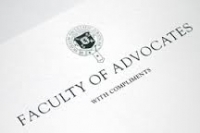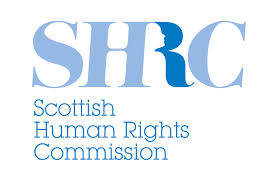Scottish Legal Sector Condemns Tory Attack On Human Rights
Wednesday 03 February, 2016 Written by Simon Collyer
Human rights campaigners say ‘no coherent case’ for repeal of human rights act
The Faculty of Advocates and the Law Society of Scotland have joined the growing criticism of the UK Government’s plans to repeal the Human Rights Act.
Both organizations have criticized the Tory plans in written evidence to the Scottish Parliament’s European and External Relations Committee ahead of its meeting today (Thursday).
The Faculty of Advocates said that the Human Rights Act “has been beneficial for the people of Scotland” and has improved the law’s treatment of “disability, mental health, discrimination and equality”, while the Law Society of Scotland praised the Act’s “positive impact on the development of law and policy”.
The Tory plans also faced searing criticism from Amnesty International – who said that there is “simply no coherent case for the reforms proposed”.
Commenting, SNP MSP Adam Ingram said:
“Human rights are written into the devolution settlement and successive Scottish administrations have sought to embed, develop and promote them. Human rights law is not a reserved issue and the overwhelming majority of MSPs across parties strongly support the continuation of the Human Rights Act.
“Those practicing the law are clear – the Human Rights Act has been a force for good and has benefited people living in Scotland.
“Yet the Tories are intent on weakening the force of international human rights obligations by scrapping the Human Rights Act – despite a series of experts making clear the damage this regressive move would do.
“If the Tories insist on pushing forward with their ill-considered plans then we are clear that they will need the Scottish Parliament’s consent. Scotland stands for human rights – and the SNP stands ready to defend them.”
Amnesty:
It is the view of Amnesty International that the UK Government should not repeal the Human Rights Act. There is simply no coherent case for the reforms proposed. We believe that any repeal and replacement with new legislation on the basis of current proposals would represent a dilution of rights, a lowering of human rights standards in the UK and a breaking of the concept of universality which is fundamental to human rights. We base this concern not only on the policy document released by the Conservative Party1 and speeches by prominent government spokespeople but also on the toxic rhetoric that surrounds human rights in the UK. The tiny minority of controversial cases – such as those involving convicted criminals or alleged terrorists – masks the reality of the vast majority of cases of ordinary people who benefit from it every day and rely on it to secure justice and protection. These cases have had a positive impact for the individuals concerned but also on the policies and processes of public bodies.
Faculty of Advocates:
The Faculty believes that the incorporation of the ECHR rights into domestic law through the Human Rights Act and the devolution legislation has been beneficial for the people of Scotland.
The devolution and human rights legislation has revitalized the law. Almost every area of Scottish practice and procedure has been examined and tested against the ECHR. In many (perhaps most) areas, this process resulted in no substantial change. In others it has resulted in important and overdue reforms of our law. These include reforms of the appointment and tenure of judges10, disclosure to the defence of the prosecution case11, the right of a suspect to have a lawyer present when interviewed by the police12, the right of unmarried fathers to participate in proceedings concerning their children13 as well as important reforms in more technical areas such as the law on diligence on the dependence of an action14. The law’s treatment of disability, mental health, discrimination and equality has progressed significantly since incorporation of the ECHR into domestic law. All of these advances would not have been made as rapidly or at all, or maintained, without reliance on the Convention and the jurisprudence of the Strasbourg Court.
Law Society of Scotland
We believe that the Human Rights Act 1998 (the HRA) is a key component of our society and an effective tool for the protection of our rights through the domestic courts in the UK. The HRA provides an effective means for individuals to challenge the actions of the State and seek redress in a more accessible, timely and affordable way than was possible before incorporation of the ECHR rights. The HRA has had a positive impact on the development of law and policy both in the UK and in Scotland. We therefore support the retention of the HRA, but we also accept that there is room for improvement of the Act.
The Scottish Human Rights Commission (SHRC)
The Human Rights Act also places duties on public bodies in respect of human rights by making it unlawful for them to act incompatibly with ECHR rights (section 6 HRA). This gives rise to a compliance duty that has led to positive changes in policies, practices and culture without the need for individuals to take legal action including, for example, in hospitals and other health and social care settings
Repealing the Human Rights Act would therefore undermine the current devolution settlement.
There would also be direct and adverse consequences for people in Scotland in reserved policy areas like immigration, defense, some aspects of social security, employment and privacy. This would directly affect people in all sorts of ways – disabled people looking to challenge policies like the bedroom tax; the families of Scottish soldiers whose rights are not upheld whilst operating outside of the UK; people and communities affected by immigration detention practices; employees seeking to challenge unfair employment practices; people concerned about the excessive collection of personal data.

1 comment
Leave a comment
Make sure you enter all the required information, indicated by an asterisk (*). HTML code is not allowed.
Join
FREE
Here










